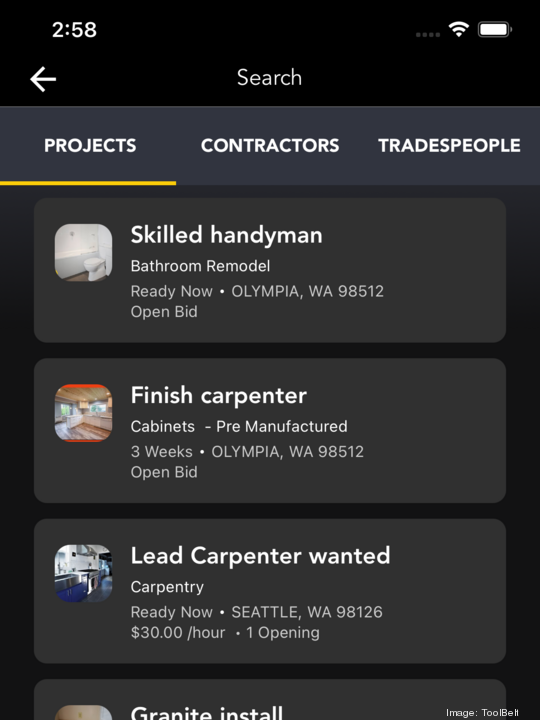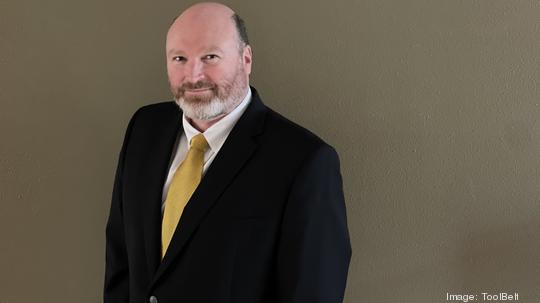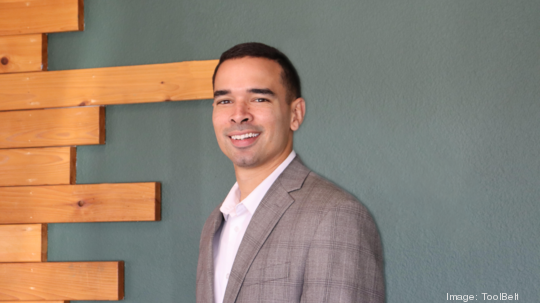
Egor Cotov is a software developer in Ukraine. He lives and works outside Kyiv. The father of two recently started working for Vancouver-based startup ToolBelt to help the company rewrite an area of the ToolBelt app.
His message for companies in the U.S. that are pulling development or thinking of pulling work out of Ukraine: Don’t.
Ukraine has a robust technology outsourcing economy, but the Russian invasion has thrown the future of that industry in question. According to IT Ukraine Association survey, 70% of the country’s IT professionals are working in safe regions in the western part of the country and 85% are doing their regular jobs.
Cotov and three of his colleagues from a Ukrainian development shop are now working for ToolBelt part time. They are expected to come on full time in June, said ToolBelt co-founder and chief technology officer Ross Barbieri.
Barbieri connected with Cotov years ago on a side project he had been working on. Cotov helped him build some software. With news of the Russian war in Ukraine, Barbieri reached out to check on his friend.
“I was worried about him,” he said. “I asked him what we can do. We are all sitting here looking at this situation and you want to something about it. He said he was safe, and far enough west to be safe, but if I knew any companies using Ukrainian developers to tell them not to stop their projects.”

Barbieri did. And he saw way for ToolBelt to help directly. He had a project that needed to be done and was able to bring on Cotov and his colleagues to do the work.
“As companies withdraw because of the conflict it will have a huge effect on the economy. Anything we can do to ameliorate that is important. These guys have great capabilities,” he said, adding that a team of this caliber would normally not be available to him because they would be booked on bigger projects.
Taking on a team in a conflict area has risk, whether it's someone needing to drop offline for sudden travel or infrastructure failures, but it’s a risk Barbieri said he was willing to take.
For ToolBelt co-founder and CEO Joshua Engelbrecht the decision was an easy one. Engelbrecht spent six years in the U.S. Army and said he understands service to country and also the importance of flexible, understanding employers.
“Personally, I think it’s a travesty what is going on over there. We (the U.S.) have done a good job sending aid. If you really want to help, people need funding for food and this is the way to support that,” he said.

ToolBelt makes a construction employment app to connect homebuilders and general contractors to subcontractors and tradespeople.
Cotov said his paycheck is helping feed his family and also allows him to support others who need a safe place to stay as they make their way west or make his own donations for needed supplies.
“Ordinary people panic, so do investors. I saw a minimum 50% decrease in the Ukraine's IT market in the last month. Before the war we had roughly 250k people working in this industry,” Cotev said in an email. “So, as you can imagine, all companies are afraid of risks and either discontinue current projects or reconsider starting new projects in Ukraine. IT is not the biggest industry in Ukraine (5% of GDP), but the fastest growing and one of few professions that can work remotely.”
He continued, “My day-to-day routine didn't change a lot, except I read in the morning all the warnings of airstrikes where my colleagues are. I'm still applying my engineering skills every day to work as usual and perform well. I had fewer and fewer cases now, when I need to stop doing what I'm doing at the moment and help relatives/friends/colleagues/random people to donate, provide shelter or even something small like help to find relative information. I'm lucky that I am far away from many dangerous places. Unfortunately, not all people are as lucky as I am.”



